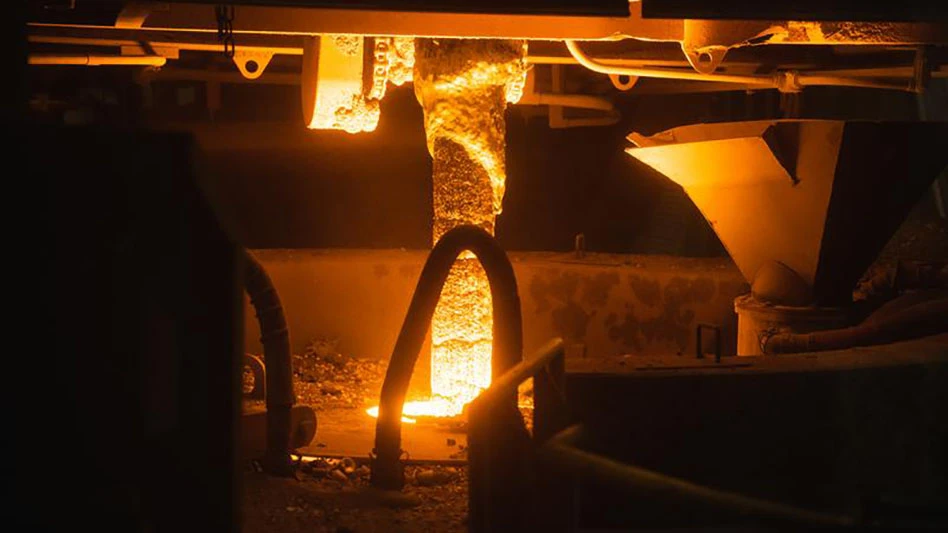
Photo courtesy of SSAB
SSAB, a Swedish steelmaker that operates two recycled-content steel production facilities in the United States, will describe its journey to "near-zero-emission steelmaking” as part of Sweden’s delegation to the United Nations climate change conference COP29 in Baku, Azerbaijan, this month.
The company says now is the time for policymakers to commit to nationally determined contributions (NDCs) that SSAB says can provide clarity on a path away from fossil fuels and that spurs investments in “green” steelmaking technology.
“SSAB believes that ambition and speed in the climate transition must increase,” says Martin Pei, chief technology officer at SSAB. “We need to phase out fossil fuels and it must cost to emit. Global carbon pricing mechanisms and common emission standards are needed to set the foundation for faster industrial decarbonization.”
The company has identified several what it considers promising proposals for establishing a common standard on near zero-emission steel.
“We support the Steel Standard Principles that were launched at COP28; now, policymakers need to take the next step and enact common emission measurement rules,” SSAB says. “Trade rules also need to focus on the sustainability aspects of the material rather than blanket tariffs.”
In the European Union, the Carbon Border Adjustment Mechanism would be one such example.
“Creating internationally accepted trade rules for near zero-emission steel products would allow for significant global CO2 emissions reductions by incentivizing the roll-out of clean steel production technologies,” Pei says.
In Baku, SSAB plans to talk about its efforts to decarbonize steel production by switching from coking coal to fossil-free electricity as its primary energy source. The company plans to transform its entire Northern European production system to carbon emission-free steelmaking using both recycled steel and virgin iron ore as raw materials.
In 2023, SSAB introduced a near zero-emission steel based on recycled scrap known as SSAB Zero, produced using fossil-free energy. That SSAB product has been made at its electric arc furnace (EAF) mill in Montpelier, Iowa.
Along with mining company LKAB and energy company Vattenfall, SSAB also has developed HYBRIT technology, which uses hydrogen, made with fossil-free electricity, to make hot briquetted iron (HBI) from iron ore pellets. So far, SSAB says it has produced about 1,000 metric tons of steel based on HYBRIT technology.
“Our hope is that countries increase their national ambitions to limit climate change and to create enabling conditions for investments and a competitive transformation,” SSAB says. “Last year’s COP marked a moment of progress as the need to transition away from fossil fuels was mentioned for the first time in the final text.”
Latest from Recycling Today
- Aqua Metals secures $1.5M loan, reports operational strides
- AF&PA urges veto of NY bill
- Aluminum Association includes recycling among 2025 policy priorities
- AISI applauds waterways spending bill
- Lux Research questions hydrogen’s transportation role
- Sonoco selling thermoformed, flexible packaging business to Toppan for $1.8B
- ReMA offers Superfund informational reports
- Hyster-Yale commits to US production





